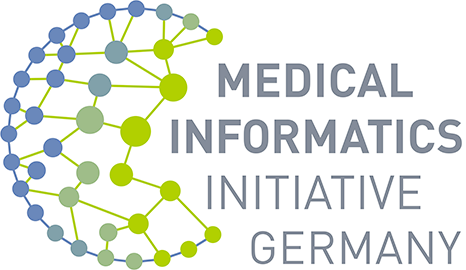Berlin/Erlangen, 25/03/2021. The mortality rate of patients infected with COVID-19 in Germany is falling, reported a research group led by University Hospital Erlangen and Friedrich Alexander University (FAU) Erlangen-Nuremberg. Their recently published study examined hospitalisations for 1,318 COVID-19 patients at 14 German university hospitals between January and September 2020. The analysis indicates a fall in the average mortality rate of COVID-19 patients from 20.7 per cent between January and April 2020, to 12.7 per cent between May and September 2020. The researchers believe this could be evidence of continuous improvements in COVID-19 care, improved treatment recommendations, and the growing experience of the attending medical staff. The cross-hospital data analyses were made possible by preliminary work by the Medical Informatics Initiative (MII) of the German Federal Ministry of Education and Research (BMBF), expanded on within the scope of the CODEX project.
“This study shows for the first time that, for the inpatient care of COVID-19 patients at German university hospitals, the very high mortality rate seen early on has fallen significantly,” states Professor Jürgen Schüttler, Head of the Department of Anaesthesiology at University Hospital Erlangen. “The progress made by the MII is, at the right time, enabling analyses across multiple sites, to better address the challenges of the COVID-19 pandemic.”
The overall mortality of COVID-19 patients treated as inpatients at 14 German university hospitals was 18.8 per cent from January to September 2020. In cases where the patients had to be ventilated, the mortality rate in the early months of January to April 2020 was 39.8 per cent, decreasing to 33.7 per cent between May and September 2020. This falling mortality rate was especially pronounced for patients aged 60 and older.
Evaluation of risk factors: age, sex, comorbidities
Mortality rates of COVID-19 patients were evaluated in relation to various factors, such as ventilation status, sex, age, the duration of intensive care, and comorbidities, i.e. additional medical conditions present in the patients. Additional conditions commonly seen in COVID-19 patients included renal insufficiency (35.2 %), anaemia (26.0 %) and diabetes mellitus (21.1 %). A majority of the COVID-19 patients (58.3 %) were aged 60 years or older. 82.6 % of patients who died were from this age group. The overall proportion of male COVID-19 patients was 63.4 per cent; among ventilated patients 74.9 per cent; and among deceased patients 72.6 per cent. According to Schüttler, the identified risk factors – male sex, increased age, and the comorbidity pattern described above – are consistent with findings of earlier publications.
MII data integration centres enable COVID-19 research across multiple sites
The MII’s data integration centres (DICs) formed the basis for the study. Since 2018, 29 university hospitals participating in the MII across Germany have established these centres. Their aim is to make data from medical care and research available – across multiple hospitals, and in line with data protection regulations – for use in research. The DICs are connected with existing hospital IT infrastructure, and allow initially decentralised data storage. The university hospitals retain control over their data. Clinical data sources are systematically incorporated, and the data are harmonised and made available for research in each DIC using a standardised data model. The distributed data at the DICs were analysed using corresponding methods suitable for such “federated” sources. The analysis was enabled by the technological infrastructure and the regulatory framework created within the MII.
“The MII infrastructure provides the foundations for the COVID-19 research data platform, under development since August 2020 as part of the German University Hospitals’ Network (NUM). The aim of this CODEX project is to establish a COVID-19 specific collection of research data from all inpatient cases at the university hospitals. Nearly all German university hospitals are now working hard to provide these GECCO (German Corona Consensus) data sets to their respective DICs, to enable more extensive analyses of distributed medical care data for COVID-19 patients in the future,” explains Sebastian C. Semler, TMF (Technology, Methods and Infrastructure for Networked Medical Research), head of the MII coordination office and joint CODEX project lead with Ralf Heyder, Charité – Universitätsmedizin Berlin, head of the NUM coordination office.


